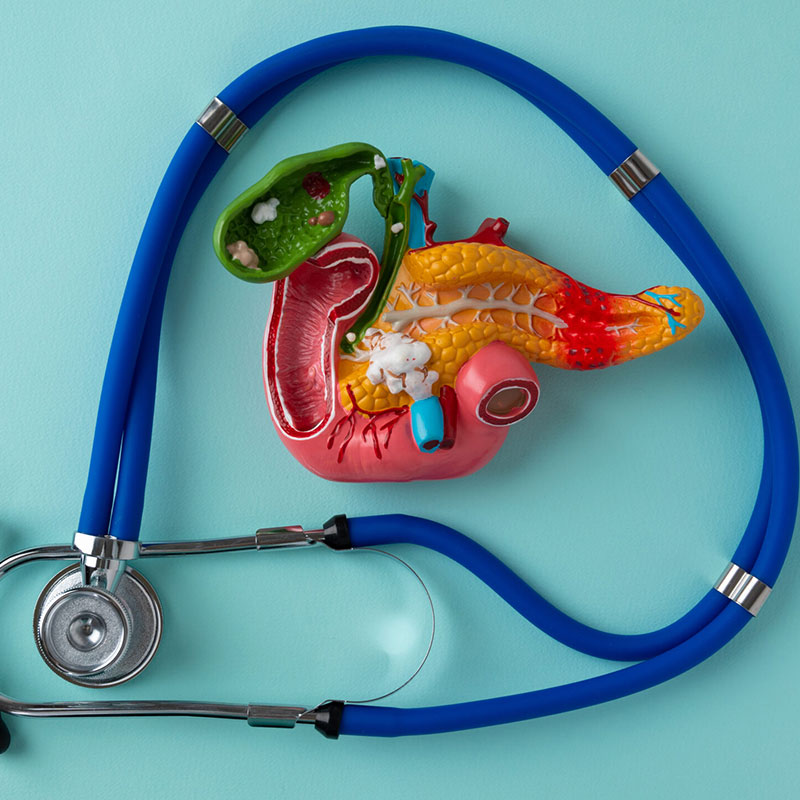
Smt Parvati Devi Hospital, a NABH-accredited, multi-speciality hospital located in the heart of Amritsar, is dedicated to providing top-notch healthcare services. One of the key specialties offered at the hospital is gastroenterology, which focuses on the diagnosis and treatment of disorders related to the digestive system. Understanding gastroenterology is crucial for maintaining digestive health and overall well-being.
The Digestive System: An Overview
The digestive system plays a vital role in breaking down food, absorbing nutrients, and eliminating waste from the body. It consists of several organs, including the esophagus, stomach, small intestine, large intestine, liver, gallbladder, and pancreas, all working together to ensure proper digestion and nutrient absorption.
Common Gastrointestinal Disorders
Gastroenterology deals with a wide range of disorders affecting the digestive system. Some common gastrointestinal disorders include:
Gastroesophageal Reflux Disease (GERD): Characterized by acid reflux and heartburn, GERD occurs when stomach acid flows back into the esophagus, causing irritation and discomfort.
Peptic Ulcers: Peptic ulcers are open sores that develop on the lining of the stomach, small intestine, or esophagus, often caused by an imbalance of digestive fluids in the stomach.
Inflammatory Bowel Disease (IBD): IBD is a group of inflammatory conditions affecting the colon and small intestine, including Crohn's disease and ulcerative colitis, which can cause abdominal pain, diarrhea, and other symptoms.
Irritable Bowel Syndrome (IBS): IBS is a functional gastrointestinal disorder characterized by abdominal pain, bloating, and changes in bowel habits, often triggered by certain foods or stress.
Liver Diseases: Liver diseases, such as hepatitis, cirrhosis, and fatty liver disease, can affect the liver's ability to function properly, leading to serious health issues.
Diagnostic and Treatment Options
Gastroenterologists use a variety of diagnostic tools to assess and diagnose digestive disorders, including endoscopy, colonoscopy, imaging tests, and blood tests. Treatment options depend on the specific disorder but may include medication, dietary changes, lifestyle modifications, and in some cases, surgery.
Maintaining Digestive Health
Maintaining digestive health is essential for overall well-being. Some tips for promoting digestive health include:
Eating a balanced diet rich in fiber, fruits, and vegetables
Drinking plenty of water
Avoiding smoking and excessive alcohol consumption
Managing stress through relaxation techniques, such as yoga or meditation
Getting regular exercise
Conclusion
Gastroenterology plays a crucial role in maintaining digestive health and treating a variety of digestive disorders. Smt Parvati Devi Hospital is committed to providing comprehensive gastroenterology services, including expert diagnosis, treatment, and ongoing care for patients with digestive issues. If you're experiencing digestive problems, don't hesitate to reach out to our experienced gastroenterologists for expert evaluation and care
The Digestive System: An Overview
The digestive system plays a vital role in breaking down food, absorbing nutrients, and eliminating waste from the body. It consists of several organs, including the esophagus, stomach, small intestine, large intestine, liver, gallbladder, and pancreas, all working together to ensure proper digestion and nutrient absorption.
Common Gastrointestinal Disorders
Gastroenterology deals with a wide range of disorders affecting the digestive system. Some common gastrointestinal disorders include:
Gastroesophageal Reflux Disease (GERD): Characterized by acid reflux and heartburn, GERD occurs when stomach acid flows back into the esophagus, causing irritation and discomfort.
Peptic Ulcers: Peptic ulcers are open sores that develop on the lining of the stomach, small intestine, or esophagus, often caused by an imbalance of digestive fluids in the stomach.
Inflammatory Bowel Disease (IBD): IBD is a group of inflammatory conditions affecting the colon and small intestine, including Crohn's disease and ulcerative colitis, which can cause abdominal pain, diarrhea, and other symptoms.
Irritable Bowel Syndrome (IBS): IBS is a functional gastrointestinal disorder characterized by abdominal pain, bloating, and changes in bowel habits, often triggered by certain foods or stress.
Liver Diseases: Liver diseases, such as hepatitis, cirrhosis, and fatty liver disease, can affect the liver's ability to function properly, leading to serious health issues.
Diagnostic and Treatment Options
Gastroenterologists use a variety of diagnostic tools to assess and diagnose digestive disorders, including endoscopy, colonoscopy, imaging tests, and blood tests. Treatment options depend on the specific disorder but may include medication, dietary changes, lifestyle modifications, and in some cases, surgery.
Maintaining Digestive Health
Maintaining digestive health is essential for overall well-being. Some tips for promoting digestive health include:
Eating a balanced diet rich in fiber, fruits, and vegetables
Drinking plenty of water
Avoiding smoking and excessive alcohol consumption
Managing stress through relaxation techniques, such as yoga or meditation
Getting regular exercise
Conclusion
Gastroenterology plays a crucial role in maintaining digestive health and treating a variety of digestive disorders. Smt Parvati Devi Hospital is committed to providing comprehensive gastroenterology services, including expert diagnosis, treatment, and ongoing care for patients with digestive issues. If you're experiencing digestive problems, don't hesitate to reach out to our experienced gastroenterologists for expert evaluation and care
